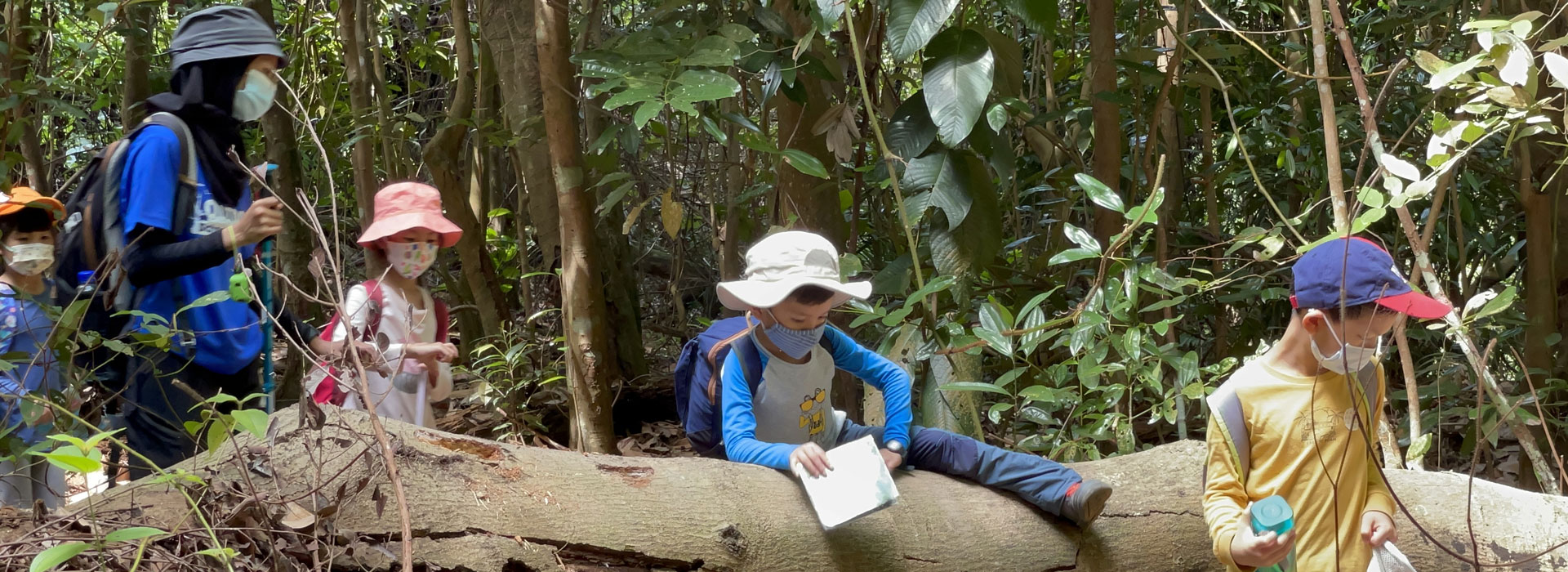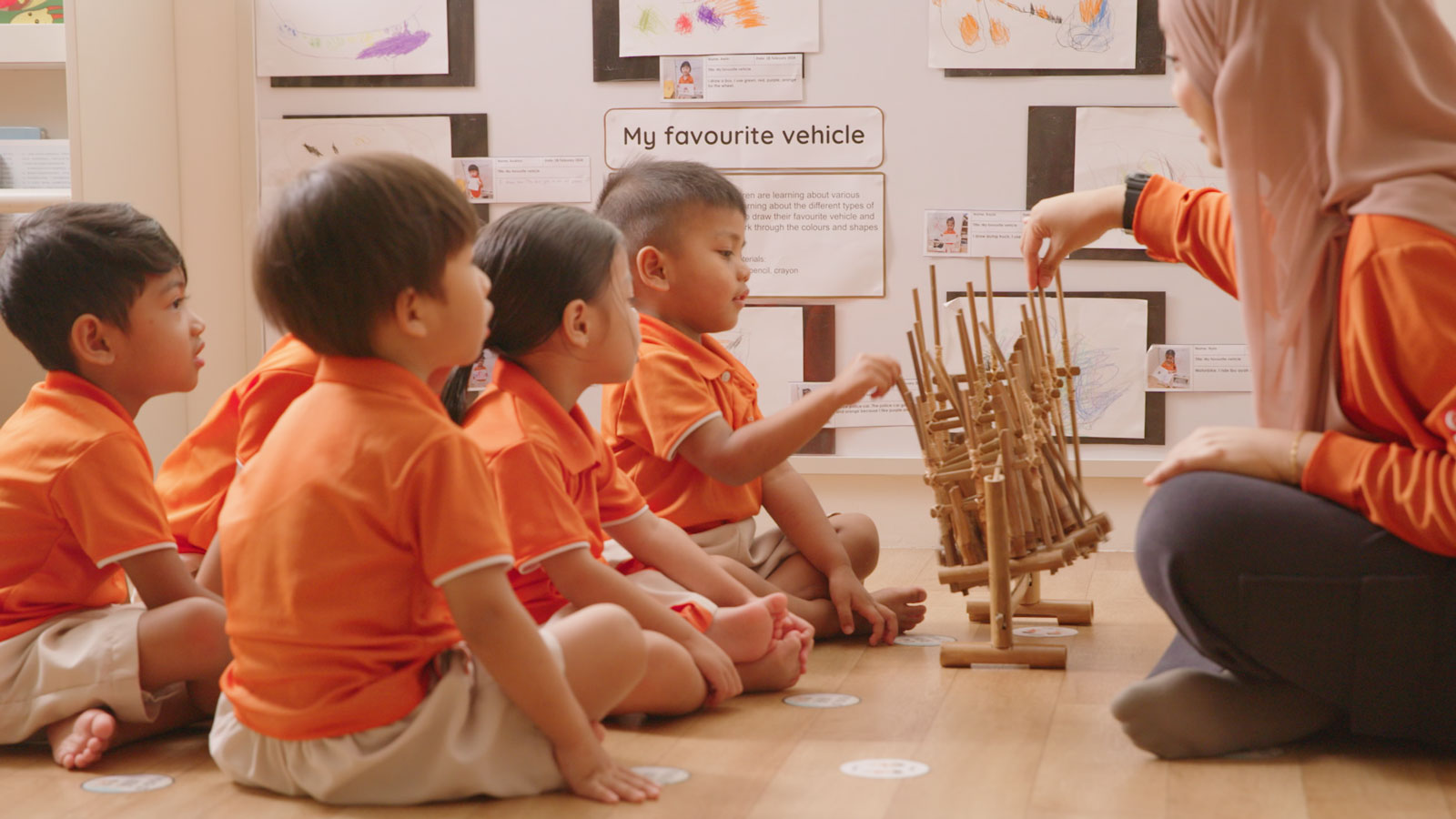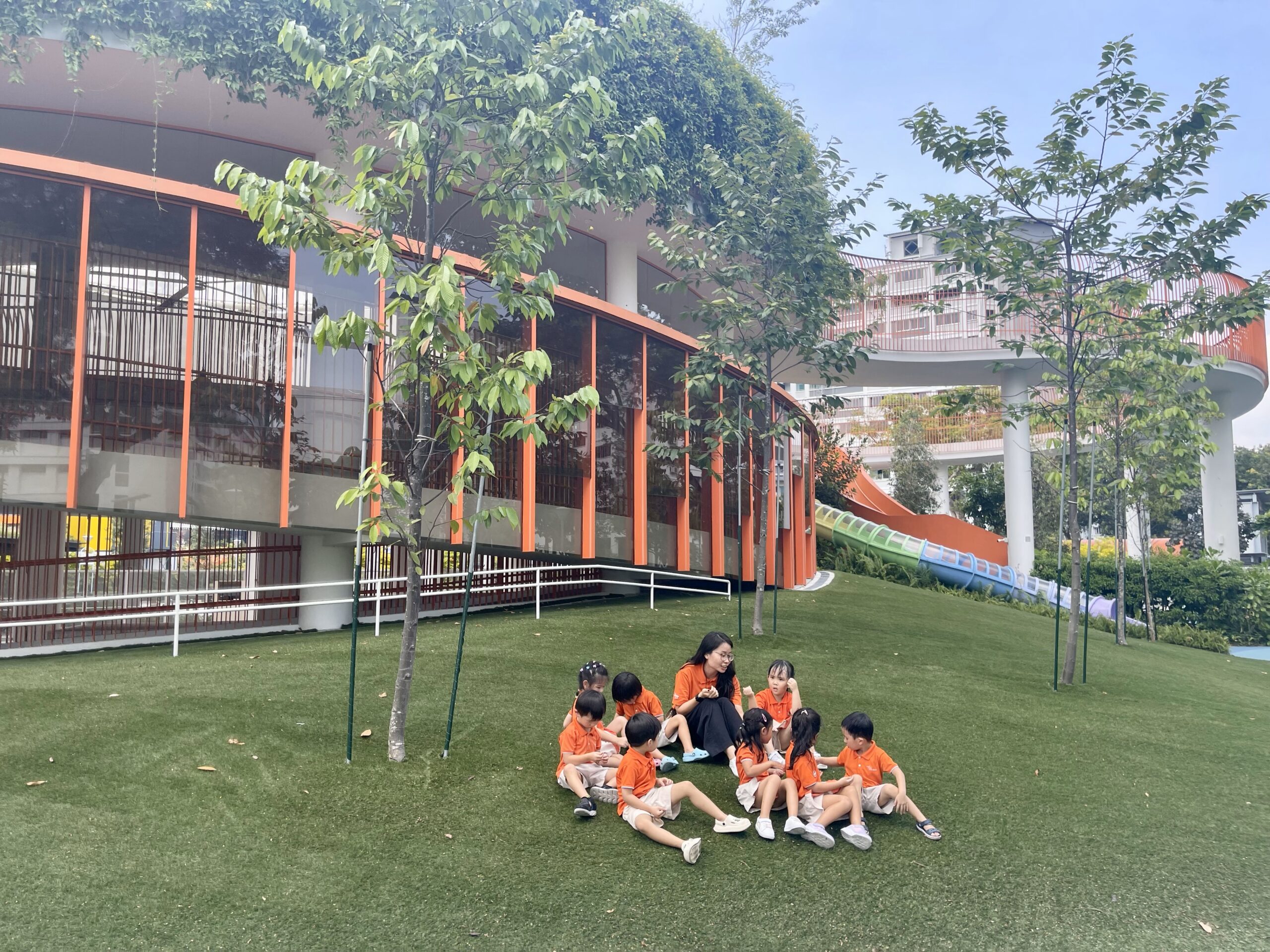![]()
![]()
The forest is my school
PUBLISHED
25 April 2022
Three years ago, NTUC First Campus (NFC) launched its first outdoor education brand, Outdoor School Singapore (OSS), to extend children’s learning beyond the four walls of a regular classroom.
OSS’ recent March holiday programmes attracted about 100 children and were held over three days at Dairy Farm Nature Reserve and Chestnut Nature Park. OSS also runs a regular survival skills programme at Admiralty Park, usually held over four Saturdays and offers customised programmes for schools and organisations.
The Straits Times documented the journey of two groups of children who attended OSS’ Forest Scout programme during the March school holidays, and interviewed Ms Ann Phang, OSS’ programme architect.
Changing children’s mindsets about outdoors
Ms Phang shared how some children who enrolled in OSS’ holiday programmes initially refused to sit down on the ground in the forest, preferring to squat or sit on their bags because they have been taught that soil is dirty.
To change the children’s mindsets about the outdoor environment, her team will ask them questions such as “Why is the soil precious? Who needs it?”, leading them to think about the importance of nature for the trees and animals.
“That’s the mindset we want to change, but you cannot do it indoors. You have to take them into the environment to see and feel it,” said Ms Phang.
Equally important is changing the mindsets of children who spend a lot of time on screens and have not been exposed to open-ended resources. When allowed to explore freely, they do not know what to do.
“They ask us, ‘What is there to play? It’s so boring,'” she said. “We ask them (in return), ‘What do you think you can play? What’s interesting here?'”
As children blossom, parents reap the benefits.
Learning life skills
Being in the forest heightens the basic senses of sight, sound, smell, touch and taste.
Children also take part in activities which allow them to hone their spatial awareness skills, motor abilities, balancing and even the mind-body connection, Ms Phang added.
Despite finding nature walks with the family boring, information technology professional Pauline Koh’s child, Joy Tinn, loves attending holiday programmes conducted by OSS because of the games incorporated.
Besides gaining confidence in navigating different types of terrain, the eight-year-old has learnt to identify poisonous plants and knows what to do if she sees a monkey or snake.
“It helps to ingrain in her some basic survival skills. I think these scenarios are real in Singapore, especially since there are monkeys in a lot of places,” said Ms Koh.
On the third day of the Forest Scouts programme, children have to climb over several logs and a steep cycling ramp. In the process, they learn to make risk assessments about hazards in the forest, such as looking out for ant trails, poisonous plants and pits.
Before climbing any trees or logs, the children are also taught how to assess if it is safe to do so.
“We don’t want children to just choose any tree, any log and just climb. If it’s a hollow one or it’s wet, then it’s not wise to step over,” said Ms Phang.
During the process, if children become emotional in fear, OSS’ coaches will calm them down, and later conduct reflections with them. Regardless of the outcomes, OSS instructors ensure that affirmation and acknowledgement are given.
Appreciating, then saving nature
Through repeated exposure to nature, OSS’ programmes also nurture the seeds of environmentalism.
“You always start with awareness, followed by appreciation, then you talk about ecological intelligence,” Ms Phang said. “Many schools teach children about the 4 ‘Rs’ (refuse, reduce, reuse, recycle), but if there’s no awareness to begin with, there’s no connection or appreciation. Let’s build the foundation first.”
While navigating Chestnut Nature Park, the children were also tasked to look for specific plants on their list, some of which are poisonous. If they find them, they earn “crystal” tokens.
Unlike instances where parents do not allow their children to touch things at the park, the OSS instructors would teach children to differentiate poisonous and non-poisonous plants through engaging their senses. The programme also teaches children that the forest is someone’s home, so they should treat it respectfully.
Unlike pure forest schools, OSS takes a more structured approach to outdoor education. Tapping on pre-school pedagogy and resources from NFC, OSS offers the widest range of programmes for children aged four to nine.
“This year alone, OSS will be conducting more than eight programmes that will be held at parks and nature reserves across Singapore. Our children are exposed to different learning experiences and achieve different learning outcomes each time they join us,” Ms Phang said.
Media Coverage:
Straits Times Online (24 April 2022): https://www.straitstimes.com/singapore/parenting-education/forget-enrichment-classes-these-kids-learn-life-skills-by-climbing-trees-and-spotting-snakes
Straits Times Print (25 April 2022): PDF as attached
Topics:
Share this article
Newsroom
Stay informed on the latest news and happening in NFC and the industry








